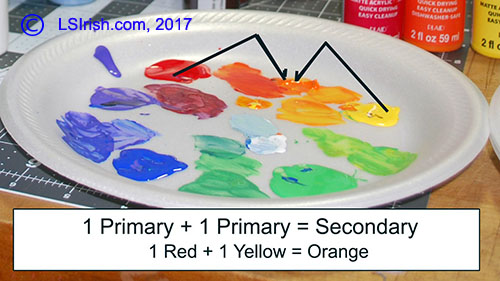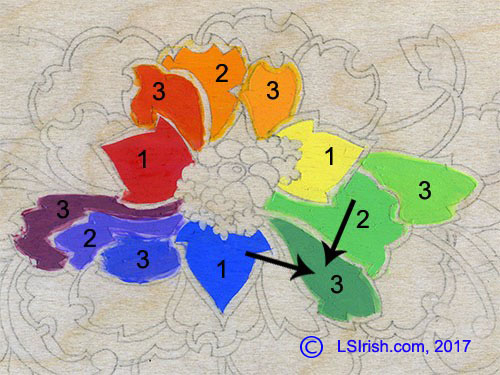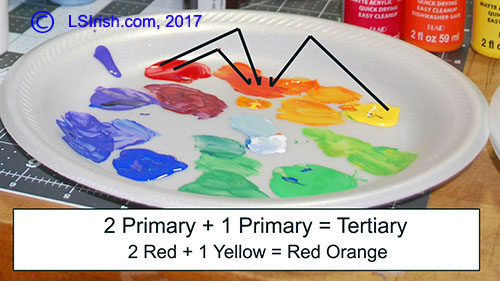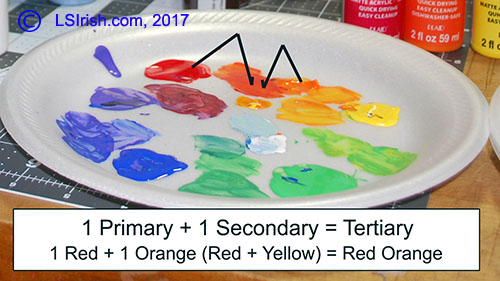Step 8
Cut and lift the frisket for the petals numbered #3, these are you tertiary colors.
You can create tertiary colors in two ways.
#1 Mix two brushful’s of one primary with one brushful of another primary, stir well.
#2 Mix one brushful of one primary with one brushful of its secondary color.
Fill in the petals with you new color mix and allow to dry.
TERTIARY COLORS
Three parts of primary color are used to create the tertiary hues.
2 Red + 1 Yellow = Red Orange
1 Red + 2 Yellow = Yellow Orange
2 Yellow + 1 Blue = Yellow Green
1 Yellow + 2 Blue = Blue Green
2 Blue + 1 Red = Blue Purple
1 Blue + 2 Red = Red Purple
Since your secondary colors are one primary + one primary, adding one more brushful of one of those primaries creates a tertiary.
ACCURACY V. EASE
There are times when you need accuracy in your color mixing, and other times that you just want an easy way to create new colors.

For accurate color mixing use the primary formulas, returning to the pure hues on your palette to create the intermediate colors.
2 Red + 1 Yellow = Red Orange
For easy mixing, when absolute accuracy is not as important you can use the secondary and tertiary colors that you have already created with new brushfuls of your primary.
1 Primary + 1 Secondary = Tertiary
The above formula can also be written as:
1 Red + (1 Red + 1 Yellow) = 2 Red + 1 Yellow = Red Orange
When I am mixing a large number of color hues and tones I lay out my primary colors on my palette in a triangle shape at the outer edge of the palette area. This leaves me room between the primary colors to mix my secondary, tertiary, and muted or pastel tones.



